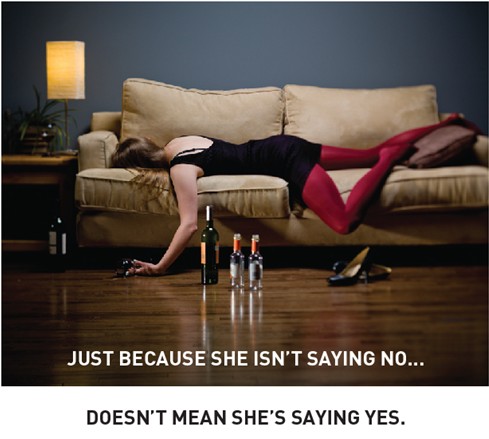While alcohol may lower inhibitions or create romantic moods, it should not be used as an excuse for neglecting responsible sexual behaviour.
It is your responsibility to make sure your partner is sober enough to give sexual consent. If they pass out, have trouble walking, talking or focusing and are not entirely aware of their environment, then they are too drunk to consent to sex.
The most commonly used “date rape” drug is alcohol. Most sexual assaults occur when young women are impaired by alcohol. Females between 16 and 24 are at highest risk.
Alcohol increases vulnerability and decreases resistance to sexual assault, making the victim seem sexually available. Legally, a person can be “too drunk” to give consent.
It doesn’t matter if the person who sexually assaults is also drunk. While alcohol can distort your thinking, consent for sex should always be consensual and clearly communicated. If you’re not sure, ask and ask again. Don’t assume. If you’re not sure, don’t do it. Consent should always be clear. Otherwise, it’s sexual assault.
For further information contact the Chatham-Kent Public Health Unit Clinic Services at 519-355-1071.

